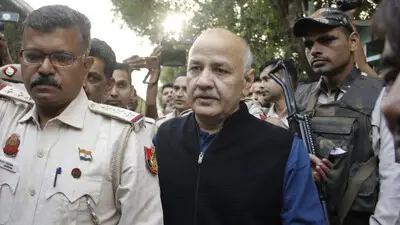Recommended Stories
Puri expressed concern over the threat posed to the Mediterranean region by al-Qaeda in the Islamic Maghreb (AQIM), which he said continues to raise a considerable amount of money from kidnappings for ransom.
"Al-Qaeda, despite considerable disruption in its leadership, remains a potent and dangerous force," Puri said in his keynote address at the VII PAM (Parliamentary Session of the Mediterranean) Plenary Session in Malta.
The terror group has suffered major setbacks in the deaths of its top leaders Osama bin Laden and Abu Yahya al-libi.
He said while the international community has made considerable progress in confronting the scourge of terrorism, according to estimates, the share of terrorism in global violence is at an all-time high.
Puri stressed on the need for removing the moral and legal ambiguities that allow terrorists to gain succour and even legitimacy.
He noted that progress under mutual legal assistance and extradition cases is still "sketchy" and is yet to be fully mainstreamed as part of regional and international counter-terrorism efforts.
Puri reiterated the need to promote and ensure a holistic "zero-tolerance" approach towards terrorism adding that success in the fight against terrorism goes hand-in-hand with progress in strengthening counter-terrorism cooperation and exchange of information at the international, regional and sub-regional level.
Further, Puri said it is imperative to have the necessary political will to squarely face the challenge of terrorism. "We need to expand the scope of the legal instruments and strengthen enforcement efforts to destroy safe havens for terrorists, their financial flows and their support networks," he said.
Terming terrorism a "contemporary evil", Puri said there is an ever increasing need to expand the normative framework to combat international terrorism taking into account the increasingly sophisticated and globalised terrorist challenges.
An early conclusion of Comprehensive Convention on International Terrorism will further strengthen the implementation of the Global Counter-Terrorism Strategy, he added.
"We also need to evolve a more powerful counter-narrative to combat incitement and radicalisation. We need to inculcate values among our young minds that promote tolerance and respect for diversity and different cultures. We need to have mechanisms to ensure accountability and justice."
"No cause or grievance can justify terrorism. It has to be confronted with resolute determination, not only by overnments, but also by societies at large. Meeting violence with greater violence can never provide a lasting solution," he said.
Puri called on the member states to adopt comprehensive and integrated national counter-terrorism legal frameworks that are anchored in the rule of law and human rights.
Nations also need to take steps to promote inter-agency coordination and exchange of counter-terrorism information, both at the national and regional/international levels.
The Counter-Terrorism Committee intends to organise next month a Special Meeting focussing on "preventing and suppressing terrorist financing".












